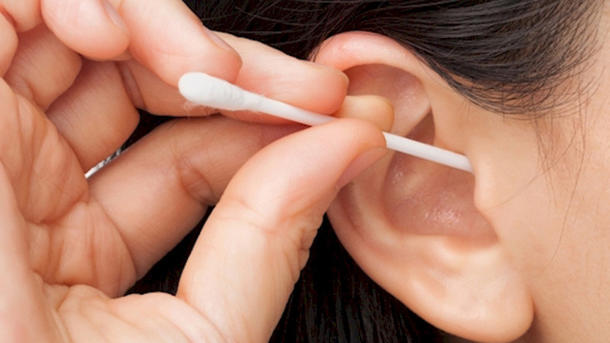
The American Academy of otolaryngology has released updated clinical guidelines for hygiene of the ears. In it, experts recommend not to use cotton swabs (buds) and any other objects penetrating into the ear canal, writes N+1.
Earwax is a normal the secret of the human body designed to protect, clean and lubricate the ear canal. It collects dirt, dust and dead cells, and also inhibits the growth of pathogenic microorganisms. Update of the stratum corneum of the skin of the auditory canal and mandibular movement provide gradual removal of the sulphur out where it is peeled or washed off. Approximately one in 10 children and 20 adults can sometimes be excessive earwax build up, leading to hearing loss and possible development of other symptoms. To prevent this, often people regularly use cotton swabs or other objects to clean the external auditory canal.
The authors of the updated manual based on the three clinical guidelines, five systematic reviews and six randomized controlled studies, concluded that this practice is unacceptable.
“Patients often think that prevents the accumulation of earwax, cleaning ears with cotton sticks, paper clips, ear candles and countless other unimaginable items. The problem is that such attempts only worsen the situation, as pushing sulphur into the ear canal. All that is able to penetrate into the ear can damage the skin of the passage and eardrum”, — said the head of the working group Seth Schwartz (Seth Schwartz).
Based on the collected data, the specialists-otolaryngologists made the following main recommendations for the hygiene of the ears.
- Don’t be too carried away by the wash ears. Excessive washing can irritate the ear canal can lead to infection and increase the risk of accumulation of earwax.
- Do not enter anything in the ear canal. Cotton buds and other items can injure the skin and the eardrum, and cause displacement of the auditory bones, leading to hearing loss, ringing in the ears, dizziness and other symptoms of ear trauma.
- Do not use ear candles. There is no evidence that they are able to remove excess ear wax, but can seriously damage the ear canal and eardrum.
- If you have a hearing loss, a sense of ear stuffiness or pain in it, seek medical help.
- Ask your doctor how you can prevent excessive accumulation of earwax, if you are predisposed to it. Some preventive methods have contraindications and can choose their specialist needs.
- Be sure to seek medical help if there is pain, bleeding or unusual discharge from the ear. These symptoms are not associated with the accumulation of sulphur and require professional examination.
- “The updated guide… is a stark reminder to patients that the health of the ears begins with themselves, and that many things not worth doing in order not to harm yourself. People tend to clean the ears, because I think earwax is a manifestation of impropriety. This wrong information leads to unsafe hygiene practices,” concluded Schwartz.
The buds, which are often positioned as “q-tips”, is actually not meant for ear cleaning — they serve to capture the brush strokes and the treatment of wounds.
Earlier large-scale population study conducted in New Zealand revealed another unwanted side excessive hygiene. It turned out that children who bite their nails and suck their thumbs in later life is much less prone to develop allergies than their peers with no such habits. This confirms the hygiene hypothesis, first proposed by British epidemiologist David Stracener (David Strachan) in 1989. According to this hypothesis, the contact with dirt and germs in early childhood reduces the risk of developing various conditions associated with excessive activity of the immune system.







